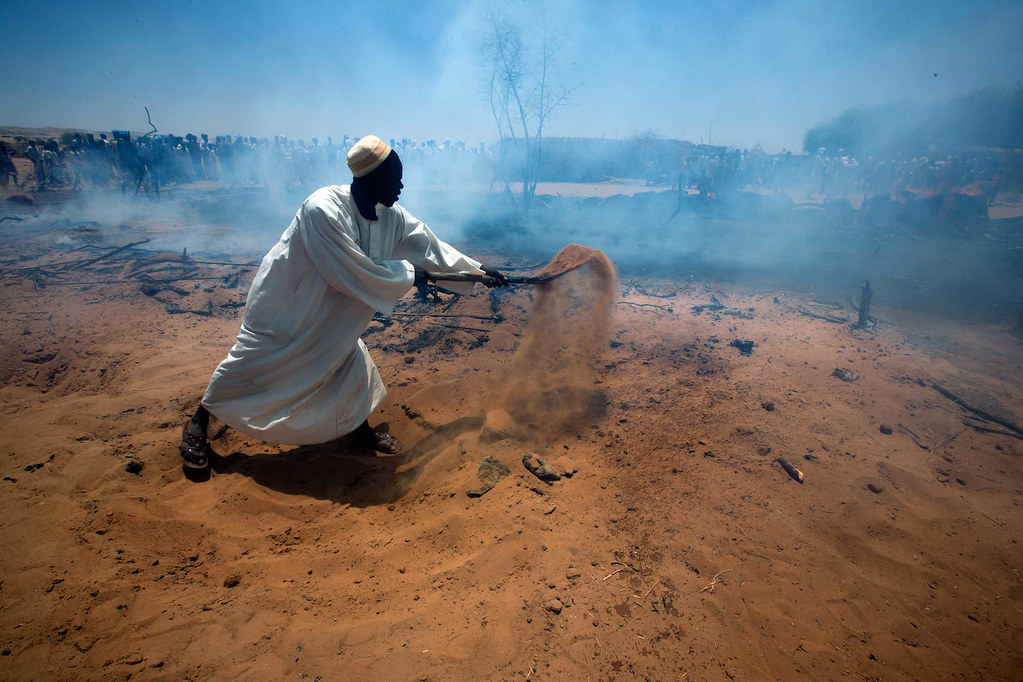
This is the first of a two-part blog discussing why conflict sensitivity is critical in the context of an evolving crisis. The second shares practical ideas and tools to help donors and aid organisations be more conflict sensitive during the ongoing political crisis in Sudan.
As the political crisis unfolds in Sudan, aid actors are working overtime to understand the dynamics, and take the necessary operational and programmatic steps to navigate the evolving situation and avoid doing harm. This is something the aid sector has had to do many times and over many years in the Sudans, and there are lessons from the past that we can – and should – learn.
Aid must avoid feeding the conflict. During times of crisis, aid faces significant risks of manipulation by conflict actors as aid organisations face pressure to continue to deliver assistance while concurrently drawing back field staff and operations for security reasons. This can lead to reduced oversight at a time when communities are facing greater insecurity, civil institutions that might otherwise provide accountability are under threat, and conflict actors may aim to control resources and provision themselves. The aid sector’s vendors and service providers, including logistical support and security provision, may also be owned by conflict actors. Aid’s unintended support to conflict actors in times of crisis may not only resource violence at that time but can also become entrenched and persist into times of stability.
Aid must also avoid legitimising conflict actors. Local leaders who are part of aid’s delivery and beneficiary selection derive both power and legitimacy through that relationship. In some cases, they may benefit materially, or by directing aid to their supporters. This legitimacy may also extend to the policies and positions they are supporting. In times of crisis, as in other times, aid actors should seek to work with and through organisations that are helping to promote accountability to the people of Sudan.
Conflict-sensitive aid helps to improve communities’ abilities to manage social tensions and conflict. Conflict and tensions mean greater humanitarian need, as communities have reduced access to markets, pasture, water, farmland, trade with neighbouring communities, and the social support and kinship networks that sustain so many. Conflict-sensitive aid supports greater community-level resilience and healthier community-level dynamics, which in turn leads to more effective aid, and ultimately less need for external aid. Fostering strong social cohesion also means quick and effective resolution to conflict, so that it does not escalate and lead to displacement, death, and destruction
Aid must balance short-term humanitarian demands with their long-term conflict impacts. In times of crisis, aid workers face increasingly challenging dilemmas. We are often asked to make difficult decisions of when and how to intervene in times where there is incomplete information, and many ways for our best efforts to go wrong. Senior level decision-makers, as well as field staff, must have the time, space, and analysis to consider not only the short-term, but the long-term impacts of aid decisions, to help ensure that our emergency responses today do not lead to more conflict down the road.
Communicating our principles and values. A senior-level focus on conflict sensitivity sends a strong message to all partners and local actors that aid must not feed or prolong the conflict, whether by triggering local tensions or feeding into the root causes of conflict. This matters all along the chain of delivery, as decisions made at many different levels will affect how aid interacts with the ongoing conflicts in Sudan.
To learn more on how to apply these lessons in practice, please read part two of ‘Conflict sensitivity is even more important in times of crisis‘.